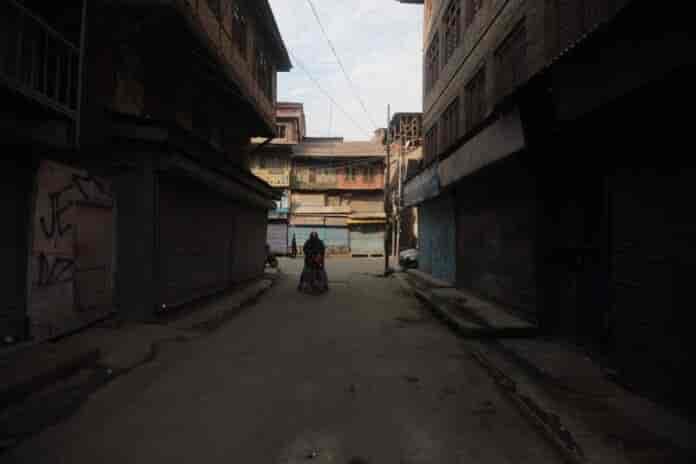The story of Harry Potter rocketed its author J. K. Rowling to unmatched prominence. The millennials, who grew up with the magical stories of her imagined world, were also aware of the progressive debate surrounding minorities’ rights in real life, including trans-rights.
So when Rowling voiced her transphobic beliefs last year, she faced intense criticism as her die-hard fans canceled her and she was made a pariah. She became one of the prominent examples of how the Cancel Culture silences the voices.
Sigal Ben-Porath, a US-based expert on free speech and former chair of Penn’s Committee on Open Expression, explains the term Cancel Culture as “canceling a person … because of their views, a statement that they make, or ideas that they stand for.” A person, often of prominence, is boycotted, or his voice cut off, “on account of an ideological breach”.
India’s majoritarian Cancel Culture
In the West, the Cancel Culture has been progressive and ruthless in implications. However, unlike the West, the Cancel Culture in India has taken a majoritarian turn as more and more anti-Muslim rhetoric and Hindutva politics cancels a contrary view. For example, recently a Tanishq advertisement — wherein a Hindu bride is shown celebrating Diwali with her Muslim in-laws — was canceled on grounds of an ultra-right conspiracy theory, “Love Jihad”.
In Kashmir, the country’s only Muslim majority region, New Delhi has canceled several voices through various methods as the local populace simmer under a sense of disenfranchisement and lack of leadership. The cutting off of the millions of voices from the rest of the world via frequent internet shutdown and effectively censoring their ideas fall in line with the larger theme of New Delhi’s Cancel Culture in Kashmir.
Since the Bharatiya Janata Party (BJP) government led by Narendra Modi took to the Centre in 2014, its party leaders have spread anti-Muslim sentiments through various mediums, including social media; a large segment of national broadcast media has been let loose to propagate Islamophobia, specifically feeding anti-Kashmir narrative.
This twin toxicity results in criminalising the identity of a Kashmiri Muslim in a majoritarian view. That forms the core of New Delhi’s Cancel Culture in Kashmir.
In January 2020, the Supreme Court of India just stopped short of declaring access to the internet a fundamental right. The court was hearing a petition for restoration of internet services in Jammu and Kashmir, an erstwhile state under communication restrictions since its limited-autonomy was revoked in August 2019.
In the ruling, the bench stated: “the freedom of speech and expression through the medium of the internet is an integral part of Art 19 …” One of the country’s states, Kerala, declared the internet as a basic human right in 2017.
Ironically, as the country marked 26 January, when the world’s largest constitution was implemented in free India in 1950, the Kashmir administration barred access to the already restricted mobile internet services across the valley. This isn’t the first internet shutdown in Kashmir and surely won’t be the last. Since 2012, there have been more than 250 incidents when the government snapped internet services in regions of J-K — the longest was a ban of 213 days after the August 2019 clampdown.
The internet shutdowns have become banaler over time. With almost every other gunfight in Kashmir, a region where twelve anti-insurgency operations are initiated daily, the authorities snapped mobile internet services.
Deplatforming Kashmiris
Every time the administration snaps fingers, it effectively pushes 6.6 million users in J-K off the online platforms. In the age of information, more than 6.6 million thoughts, ideas, and views, or general banter from a region without an elected representative are deplatformed from the internet, a medium to exercise rights under Article 19 of the constitution.
Deplatforming recently came in vogue after the Big Tech locked out Donald Trump, then sitting president of the US, from his social media accounts following his inflammatory remarks that led to mob violence at the Capitol.
While social media giants were widely applauded for their decision to keep an influential voice away from his millions of followers, the whispers argued how this case study showcases the immense power of censorship in the hands of private corporations can lead to a free speech crisis otherwise.
Unlike the private decisions, the government’s moves to deplatform millions of people of a community — a specific identity — changes the nature of the free internet as popularly perceived in a democracy.
After the August clampdown coupled with thousands of detentions, many of them slapped with the draconian Public Safety Act (PSA), social media space was seemingly the last resort for Kashmiris to voice their opinions and express ideas contrary to the government’s policies and fast-changing laws.
These avenues were systematically criminalised with time as social media users were booked under the anti-terror laws and summoned by the police. The police also went on an arrest spree against the VPN users in Kashmir, who were using the tech to circumvent the communication blockades, before restricted mobile internet was restored in the region in January 2020.
In 2012, a United Nations report said that disconnecting people from the internet is a human rights violation and against international law. The report called on the countries to maintain internet services, “even during the political unrest”.
The Centre’s sale of ‘normalcy in Kashmir’ is for the mainland; their actions and rhetoric strictly adhere to their Hindu vote bank. In doing this, New Delhi effectively silences any opinion that dares to contradict and further deepens the trust deficit in federally-governed Kashmir.
New Delhi’s Cancel Culture is deteriorating principles of democracy in Kashmir. As the space to express dissent is barricaded, the Centre risks burning the severed bridge with the valley.




